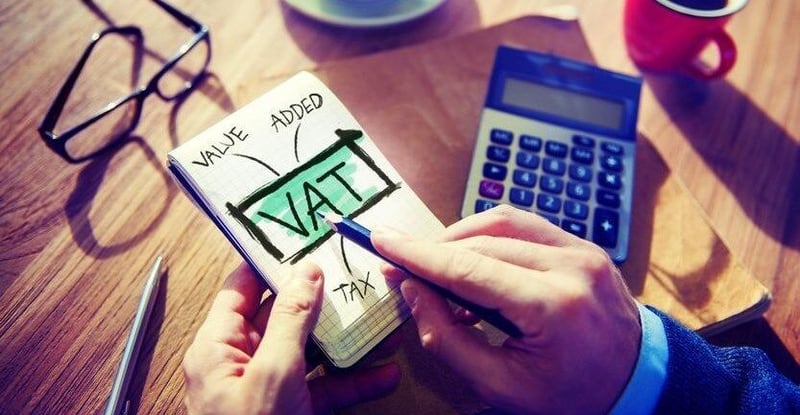How VAT registration delays are costing the economy and what Sars should do about it
Written by: BizCommunity Editor Save to Instapaper
Image source: rawpixel – 123RF.com
Registration delays are being experienced across various tax types, from VAT and carbon tax to the health promotion levy (the so-called ‘sugar tax’), which is problematic for businesses and the fiscus.
The registration requirements are onerous and the norm for a VAT registration is well beyond the turnaround time of 21 business days that the South African Revenue Service (Sars) has committed to. Recently, even with large corporates and multinationals, significant delays have been experienced, with few clients being successful with a VAT registration within Sars’ turnaround time. In one instance, a multinational has been struggling for a year to get on the VAT register.
The apparent reason for Sars’ complex, time-intensive registration processes is to prevent the registration of rogue individuals or entities set on receiving fraudulent refunds. Sars’ concerns are understandable, given how widespread fraud is across the economy, but creating bottlenecks in the registration of legitimate businesses is, in my view, not the answer.
Further, it seems that if one does not mind circumventing the system, and has some money to throw at the problem, one can buy a non-trading shelf company with an existing VAT number, so the registration processes do not seem to be infallible.
Impact on taxpayers and the economy
To ensure as many taxpayers are registered as possible, it would make more sense for the fiscus to facilitate registrations speedily and then, at least in the first year, conduct thorough audits on those businesses to prevent money from leaving through fraudulent refunds.
Drawn-out registrations delay legitimate transactions. For example, during 2024, the closing of a transaction to transfer an existing business was held up for several months because a VAT number was not available for the buyer.
Another unintended consequence of VAT registration delays is that businesses that rely on imports or exports cannot operate because without a VAT number, such a business cannot obtain a customs number.
Registration delays go beyond VAT
The problem is not limited to VAT registrations. Registrations for other tax types, where there is no or little possibility of refunds being paid, are also proving cumbersome. The health promotion levy and carbon tax are examples of taxes where money can only flow in one direction: from the taxpayer to Sars.
Not only is registration for these non-refund-carrying taxes burdensome, it also entails submitting separate applications to Sars. These applications often require the same supporting documents to be submitted each time.
Once registered as a taxpayer on eFiling, it should be easy to activate new tax types that a taxpayer may be liable for, but this is currently not the case.
To improve tax registration processes without compromising the integrity of the tax system, it would be beneficial to consider:
- Completing registrations within the required turnaround time of 21 business days and increasing the number and scope of post-registration audits to ensure Sars is receiving its due.
- Allowing once-off registration for taxpayers instead of requiring separate registrations for different tax types such as carbon tax and the health promotion levy.
- Introducing a self-service system for processes such as obtaining additional tax registrations or activating additional tax types, specifically for taxpayers already registered on eFiling.
By making it easier for taxpayers to register, Sars can ensure that much-needed tax revenue flows into the fiscus without undue delays and reduce the red tape associated with getting a business up and running.
Get new press articles by email
We submit and automate press releases distribution for a range of clients. Our platform brings in automation to 5 social media platforms with engaging hashtags. Our new platform The Pulse, allows premium PR Agencies to have access to our newsletter subscribers.
Latest from
- 7 Business Trends Your SME Can Leverage In 2026
- Sadilar Amplifies Visibility And Impact During Conference Season
- Future-ready Logistics- 5 Shifts TO Watch In 2026 (SUB-saharan Africa)
- Dunlop Urges Motorists To Prioritise Tyre Safety On The Busy Joburg To Cape Town Festive Route
- Poverty Trends Report Shows National Progress But Flags Growing Challenges In Gauteng
- SDG Challenge SA 2025 Highlights The Power Of Youth Innovation In Shaping A Sustainable Future
- Experienced Industry Leader Pauli Van Dyk Named Dean Of AFDA’s Upcoming Hatfield Campus
- South Africans Keep Tourism Alive As Homegrown Travel And Local Spending Rise
- Pretoria Student Wins Global Excel Esports Competition
- AfDB Steps Up Support For Somalia With $76m Investment In Roads And Regional Integration
- Corporate Law Experts Warn Directors Of Serious Consequences For Improper Transaction Approval
- New 3% Inflation Target Begins To Shift Expectations In South African Economy
- Retail As A Development Catalyst Drives New Africa Developments’ Inclusive Growth Strategy
- Collaborative SEF Model Shows How Civil Society And State Can Rebuild Economic Trust
- Shumani Accelerates Industrial Growth With Bheka Forklifts And New Equipment Plans For 2026
The Pulse Latest Articles
- Education Is The Frontline Of Inequality, Business Must Show Up (December 11, 2025)
- When The Purple Profile Pictures Fade, The Real Work Begins (December 11, 2025)
- Dear Santa, Please Skip The Socks This Year (December 10, 2025)
- Brandtech+ Has 100 Global Creative Roles For South African Talent (December 9, 2025)
- The Woman Behind Bertie: Michelle’s Journey To Cape Town’s Beloved Mobile Café (December 9, 2025)
